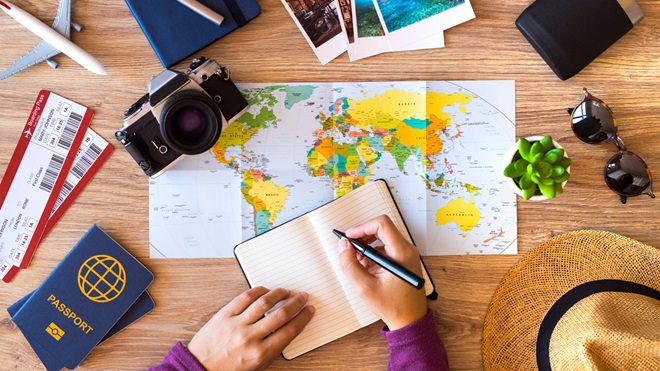There's a lot to organise before going on an overseas trip, let alone travelling in the midst of a pandemic. With COVID-19 restrictions easing, we've put together a handy list of what to consider before you go abroad so you can make sure you've got all the important things sorted.
What to do before you travel
- Passport: Is your passport travel ready? Many countries require you to have more than six months' validity on your passport, so if yours expires in less than six months, now's a good time to renew your passport.
- Research your destination: Australians are allowed to travel internationally again but many countries now impose new visa, quarantine and vaccination restrictions. Research your destination on Smartraveller.
- Vaccinations: Many countries may require you to show an International COVID-19 Vaccination Certificate upon entry. In addition to a COVID-19 vaccination, now's a good time to check if all your routine vaccinations are up to date.
- Travel insurance: The best time to buy travel insurance is when you've forked out the money for your trip, but it's better late than never. Note that some destination countries will require you to have a minimum level of medical cover for COVID-19, but not all travel insurance covers COVID-19.
- Safety: Have you checked the latest safety advice on the region you're travelling to? Subscribe to Smartraveller alerts to receive SMS or email notifications of major incidents in the area/s you're travelling to.
- Money: Have you told your bank you're going overseas? If your bank doesn't know you're travelling and it detects transactions in Australia one day, and Indonesia the next day, it might put a stop on your card to prevent fraud. Also check what your bank charges for international card transactions and ATM cash withdrawals, and ask them if there's a cheaper option.
- Accommodation booking: Even if you're backpacking on a budget, if you book accommodation for at least the first night, it can save you some hassle. The last thing you want after a long, tiring flight is to scour the town for accommodation, or spend the night in the airport when you discover the town is booked out. And many countries will require you to provide an address for where you're staying before they let you in.
- Getting there and away: What airport will you fly into and how will you get to and from the airport to your accommodation? Pre-planning your trip from the airport to your accommodation can help you bypass the airport hotel touts when you're tired and your defences are down.
- Getting around: Do you know how you'll get around, and do you need to pre-book any tickets?
- Driving: If you're planning on hiring a car, do you need an international driver's licence and are you familiar with the road rules?
- Phone: Can you use your mobile phone overseas? Have you switched off data roaming and voicemail? If you're planning to use a local or travel SIM, is your phone unlocked?
- Electrical plugs: Do you have an electrical adaptor that will work in the countries you're travelling to? Have you checked that your Australian appliances will be compatible with the voltage in that country? How many devices will you need to charge at once? Maybe it'll help to take an Australian power board in addition to your socket adaptor.
- Travel apps: Have you downloaded offline maps and travel apps onto your mobile so you're not stuck looking for free Wi-Fi when you land?
- Medication: Is it legal to take your regular and prescription medication into your destination country? Do you need to complete or bring any documentation with you? In some countries some common cold and flu treatments are restricted, among other things.
What to print out before you travel
Mobile phones make for convenient travel, but some international airport customs officials may require paper printouts. It's also handy to have back-ups of essential documents in case your phone goes missing or the battery goes flat on your flight. These are the main items you'll need.
- Tickets: In addition to getting you onto a plane, you'll often need to show customs officials proof of your return or ongoing flight to obtain entry to the country.
- Passport and visas: A scanned copy stored securely on your phone and/or photocopies of your passport can help you out of a sticky situation if you lose your passport or tour operators or authorities require a copy.
- International Vaccination Certificate: Your COVID-19 vaccination certificate will be as essential as your passport to getting around in a post-lockdown world. It's also handy to carry a record of any other travel vaccinations you've received.
- Travel insurance: Your travel insurance policy number is the equivalent of a Medicare card or health fund card for travel. Keep it handy alongside the international contact details for your travel insurer so you can call at any time for assistance.
We're on your side
For more than 60 years, we've been making a difference for Australian consumers. In that time, we've never taken ads or sponsorship.
Instead we're funded by members who value expert reviews and independent product testing.
With no self-interest behind our advice, you don't just buy smarter, you get the answers that you need.
You know without hesitation what's safe for you and your family.
And you'll never be alone when something goes wrong or a business treats you unfairly.
Learn more about CHOICE membership today
Stock images: Getty, unless otherwise stated.



